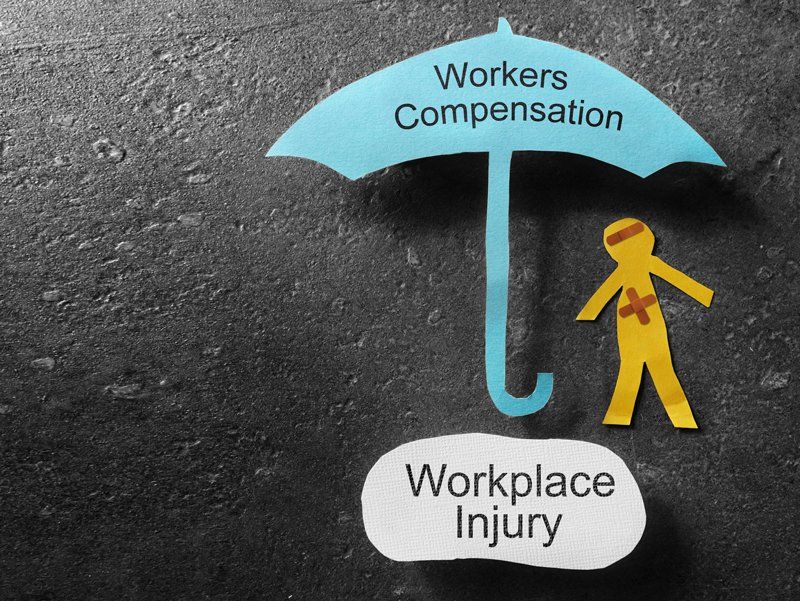What Not to Do When Injured at Work
- By Dodson Robert Atty
- •
- 02 Jul, 2018
- •
A place of employment is where a person goes to earn a wage - not get hurt. However, people are injured on the job every day. Even worse, employer neglect is the source of blame for a countless number of injuries.
To ensure that your employer is held responsible, you have to avoid making common mistakes. Make sure you know what not to do to help path the way to compensation.
To ensure that your employer is held responsible, you have to avoid making common mistakes. Make sure you know what not to do to help path the way to compensation.

Postponing Notification
Your employer should be among the first people you notify of your injuries. If you're hurt, you need to tell your employer as soon as possible. The South Carolina Workers' Compensation Commission grants employees 90 days from the date of the incident to report their injuries and file a claim.
Should this period expire, any claim submitted for worker's compensation could receive a technical denial. However, while you have ample time to report the injury, sooner is generally better than later. If you need to take time off from work or have special accommodations made for you, your employer is more apt to comply if they understand the reason behind these needs.
Should this period expire, any claim submitted for worker's compensation could receive a technical denial. However, while you have ample time to report the injury, sooner is generally better than later. If you need to take time off from work or have special accommodations made for you, your employer is more apt to comply if they understand the reason behind these needs.
Saying You're Okay
You're a strong person, and you likely need your income to survive, which can serve as motivating factors that lead you to tell your employer you're okay to work. The goal of management is to protect the company. So everything you say about your condition may be used against you at a later period.
For example, if you hurt your knee and told your employer that you were okay, this response could be used against you should the pain become intolerable in a couple of weeks and you decide that you can't come back to work.
If you've been hurt, the better answer is just to inform your employer that you're undergoing treatment to get to the bottom of your injuries.
For example, if you hurt your knee and told your employer that you were okay, this response could be used against you should the pain become intolerable in a couple of weeks and you decide that you can't come back to work.
If you've been hurt, the better answer is just to inform your employer that you're undergoing treatment to get to the bottom of your injuries.
Providing Incomplete Information
The smaller the value of a claim, the better for the employer. Naturally, companies work to keep their costs low. If you have a previous injury at all related to your current concern, present this information right away. For instance, say you hurt your back in a car accident years ago.
Your employer neglected repairs to the floor that resulted in you falling and injuring your back again. The fact you have a previous back injury doesn't absolve your employer of guilt.
However, if you fail to provide this information, your employer could argue that your previous injury is the cause for your discomfort, not the recent event, when it's discovered on your medical records. When you provide this information upfront, it may impact the value of your claim, but doesn't mean your claim will be denied.
Your employer neglected repairs to the floor that resulted in you falling and injuring your back again. The fact you have a previous back injury doesn't absolve your employer of guilt.
However, if you fail to provide this information, your employer could argue that your previous injury is the cause for your discomfort, not the recent event, when it's discovered on your medical records. When you provide this information upfront, it may impact the value of your claim, but doesn't mean your claim will be denied.
Failing to Return to Work
The goal of most workers' compensation claims is not to retire an employee, but to instead provide compensation for their injuries and support for any cost the person has incurred as a result of their injuries, such as missed time from work. If you fail to return to work when instructed to, you put your claim in jeopardy.
When your provider gives you clearance to return to work, the same information will also be provided to your employer. Your failure to return opens the door for your employer to terminate you legally.
If your provider grants provisional clearance to return with certain accommodations, such as a special chair and your employer fails to provide these concessions, you may have grounds not to return, but you will need to document their noncompliance and report it to protect yourself.
A workplace injury is a serious issue and should be treated as such. Make sure you're following the guidelines mentioned above and speaking with an attorney to get an understanding of your rights. At the Law Offices of Robert Dodson, P.A., we are happy to have a conversation with you to learn how we can help you get compensated.
When your provider gives you clearance to return to work, the same information will also be provided to your employer. Your failure to return opens the door for your employer to terminate you legally.
If your provider grants provisional clearance to return with certain accommodations, such as a special chair and your employer fails to provide these concessions, you may have grounds not to return, but you will need to document their noncompliance and report it to protect yourself.
A workplace injury is a serious issue and should be treated as such. Make sure you're following the guidelines mentioned above and speaking with an attorney to get an understanding of your rights. At the Law Offices of Robert Dodson, P.A., we are happy to have a conversation with you to learn how we can help you get compensated.
In the case of a work-related fatality, an employee's dependents are entitled to death benefits. See an overview of death benefits in South Carolina.
Did you lose a loved one due to someone's negligence? Discover two types of lawsuits you can file:wrongful death or survival cause of action.
If your life has changed due to the carelessness of a drunk driver, you are not alone. Read on to learn more about the costs of drunk driving.
South Carolina has a system in place to help those who have work-related injuries. See this brief guide to the state's workers' compensation program.






